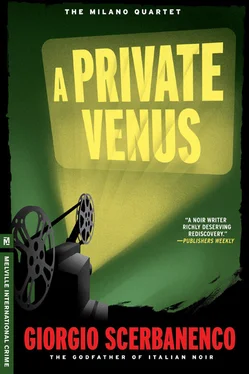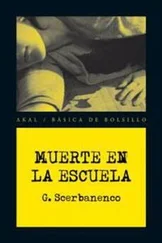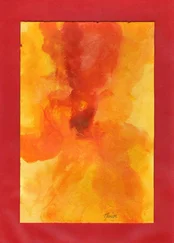Giorgio Scerbanenco - A Private Venus
Здесь есть возможность читать онлайн «Giorgio Scerbanenco - A Private Venus» весь текст электронной книги совершенно бесплатно (целиком полную версию без сокращений). В некоторых случаях можно слушать аудио, скачать через торрент в формате fb2 и присутствует краткое содержание. Жанр: Криминальный детектив, на английском языке. Описание произведения, (предисловие) а так же отзывы посетителей доступны на портале библиотеки ЛибКат.
- Название:A Private Venus
- Автор:
- Жанр:
- Год:неизвестен
- ISBN:нет данных
- Рейтинг книги:3 / 5. Голосов: 1
-
Избранное:Добавить в избранное
- Отзывы:
-
Ваша оценка:
- 60
- 1
- 2
- 3
- 4
- 5
A Private Venus: краткое содержание, описание и аннотация
Предлагаем к чтению аннотацию, описание, краткое содержание или предисловие (зависит от того, что написал сам автор книги «A Private Venus»). Если вы не нашли необходимую информацию о книге — напишите в комментариях, мы постараемся отыскать её.
A Private Venus — читать онлайн бесплатно полную книгу (весь текст) целиком
Ниже представлен текст книги, разбитый по страницам. Система сохранения места последней прочитанной страницы, позволяет с удобством читать онлайн бесплатно книгу «A Private Venus», без необходимости каждый раз заново искать на чём Вы остановились. Поставьте закладку, и сможете в любой момент перейти на страницу, на которой закончили чтение.
Интервал:
Закладка:
He was a naturally tidy young man and before handing over the car always looked inside. So he immediately saw the handkerchief and that strange, tiny object, which was what he had heard falling from the girl’s handbag as she dried her eyes. He put everything in his pocket, feeling embarrassed, because one of the Marines was waiting.
‘Good evening, Signor Auseri.’
‘Good evening.’
He crossed the Piazza Cavour, which was shady in the placid sunset. From the zoo came a vague smell of lions overheating. He went into the Galleria Cavour and stopped at the Milanese Bar, even here he was the only customer, surrounded by sweets, chocolates, pasta, bottles, and after the chilled beer the heat of his nervous anger faded inside him in a flash, and the thought came to him: ‘And now she’s killing herself.’
He left the bar, crossed the Piazza Cavour to the Via dell’Annunciata, and went up to his apartment. ‘No, she isn’t killing herself, she’ll get over it.’
In the apartment there was nobody but the maid: his father was in Rome, he spent more time in Rome than he did here.
He had a shower, and as the water crashed over him, he tried to calm down, and began to mutter. ‘Women are mad, they really do kill themselves.’
He got dressed and went into the smaller reception room, part dining room, part library and part passage leading to the main living room of the apartment. ‘But even if she does kill herself, what’s that got to do with me?’
He had dinner at home, with the TV on: things were going badly in Vietnam, an American parachutist almost shot at him from the screen. ‘I could at least have brought her back to the centre of town. Throwing her out like that in the middle of the fields in Metanopoli must have made her even more desperate.’ On the screen now, a man was expounding all sides of the question in the matter of air pollution in winter, due to large factories and home heating: in the middle of summer, with the temperature at thirty-six degrees, the subject wasn’t of much interest to him. What interested him much more, for a few moments, was the cone-shaped head of the new maid, a middle-aged lady who had asked him vaguely, with a vague smile on her face, for permission to sit down on the sofa and watch television, and now he was looking at her, her cone-shaped head covering a third of the screen, in the stuffy solitude of that apartment that no TV programme would ever break, perhaps nothing ever would, not even if they held a masked ball. ‘If she kills herself and someone saw me with her, they’ll summon me to Police Headquarters.’
He felt icily unhappy: he was always a little that way, on those evenings watching television with the maid, because in the morning he had to go to Montecatini, but that evening he was even more unhappy than usual. What if he went back to Metanopoli to have a look? He glanced at his watch, as if he could be so stupid: oh, yes, of course, the woman would still be there waiting for him, imagine that, and even if she was still there, worse still, she would start again, ‘Take me away.’ That was when he started to feel really bad.
All night, and all next day at the office, he felt bad. He read the Corriere headline by headline, but there was no news of any girl who had killed herself. There was nothing in La Notte or Il Lombardo either. In the evening the refined maid with the cone-shaped head was off, and he went and ate a couple of rolls in the Milanese Bar. Between one roll and another he crossed the street: the last edition of La Notte must be out by now. There were slim pickings these days for the afternoon papers: they couldn’t always put the heatwave or the Chinese atomic bomb on the front page, so journalists, with ulcers or without, tried to make a big thing out of local news-the husband who had hit his wife with an iron and then thrown it out of the window, the couple caught committing obscene acts in a public place (the Idroscalo, even supposing you could do anything different at the Idroscalo anyway)-and that was how Davide saw all he had feared on the front page of one of the newspapers, a headline over five columns, GIRL SLASHES WRISTS IN METANOPOLI, which gave the news a touch of geographical drama, as if the fact that someone could slash their wrists in Metanopoli was a pointer to future trends, a sign of the times: these days you don’t slash your wrists, boringly, in your own home, or in old places and cities with old names, Pavia, Livorno, Udine, today you slash your wrists in the new centres of oil and heavy industry, a slave, even in this last act of will or desperation, to the ruthless onward march of progress.
With the newspaper in his hand Davide crossed the street again and ate his second roll in the Milanese Bar, surrounded by a half a dozen people having a drink before going to the Cavour cinema to see a film whose female protagonist, judging at least from the photographs on display, was certainly a very interesting case of mammary elephantiasis.
The reporter had made everything really dramatic, describing how the grass in the field where the girl had been found with her wrists slashed had turned blue: as far as he was concerned the green of the grass combined with the red of the blood gave blue. The cyclist Antonio Marangoni, who wasn’t a racer, but simply a seventy-seven-year-old, an early riser who was on his way from his farmhouse to Metanopoli by bicycle, had discovered the girl, now dead, and raised the alarm. Next to the girl had been found a flat handbag, almost like a large man’s wallet, and inside it a letter for her sister. The contents of the letter were not revealed, but the reporter had heard from sources at Police Headquarters that it was the usual request by someone killing themselves to those remaining behind to forgive them. In brackets was a note indicating that the item continued on page 2.
Davide went home to drink some whisky and read the continuation on page 2. He read it several times, and each time he finished reading he got up and poured himself a whisky, taking the bottle from a cabinet that must have been a shoe cupboard in the nineteenth century.
She had said she would kill herself and she had killed herself. She had not even waited until the following day, she had cut her wrists as soon as he had thrown her out of the car, she had hidden in a bush, next to Antonio Marangoni’s farmhouse, like a dying animal, and there she had finished dying, because she had already made her mind up, and had already written the letter begging her sister for forgiveness: she’d had it in her bag when she was with him by the river, the same bag where she had then put the money he had given her.
But she didn’t want to die, she had to but she didn’t want to, she had moaned all the way back, no, no, no, she didn’t want to, and if he had taken her away, if they had gone far away, as she had kept asking him, she wouldn’t have killed herself, she would still be alive. Night and day he remembered her large round sunglasses, and her imploring voice, the moaning, the whining. He had killed her, he kept thinking that as he leafed through the bright files in the bright folders on his desk at Montecatini, and gradually he discovered that by drinking a certain amount of whisky, any whisky, that feeling that he had a murderer inside him, the way a small gift box given at a wedding can contain a cyanide capsule, grew weaker. After even more whisky, it disappeared altogether.
6
As soon as Duca realised from Davide Auseri’s story that the young man hadn’t killed anyone, the desire to punch him made him grit his teeth as if he had an unbearable itch. Damned psychopaths, asthenics, schizophrenics! Then the young man’s face, turned soft with anguish, like mayonnaise coming loose from a jar, aroused his pity.
Читать дальшеИнтервал:
Закладка:
Похожие книги на «A Private Venus»
Представляем Вашему вниманию похожие книги на «A Private Venus» списком для выбора. Мы отобрали схожую по названию и смыслу литературу в надежде предоставить читателям больше вариантов отыскать новые, интересные, ещё непрочитанные произведения.
Обсуждение, отзывы о книге «A Private Venus» и просто собственные мнения читателей. Оставьте ваши комментарии, напишите, что Вы думаете о произведении, его смысле или главных героях. Укажите что конкретно понравилось, а что нет, и почему Вы так считаете.












